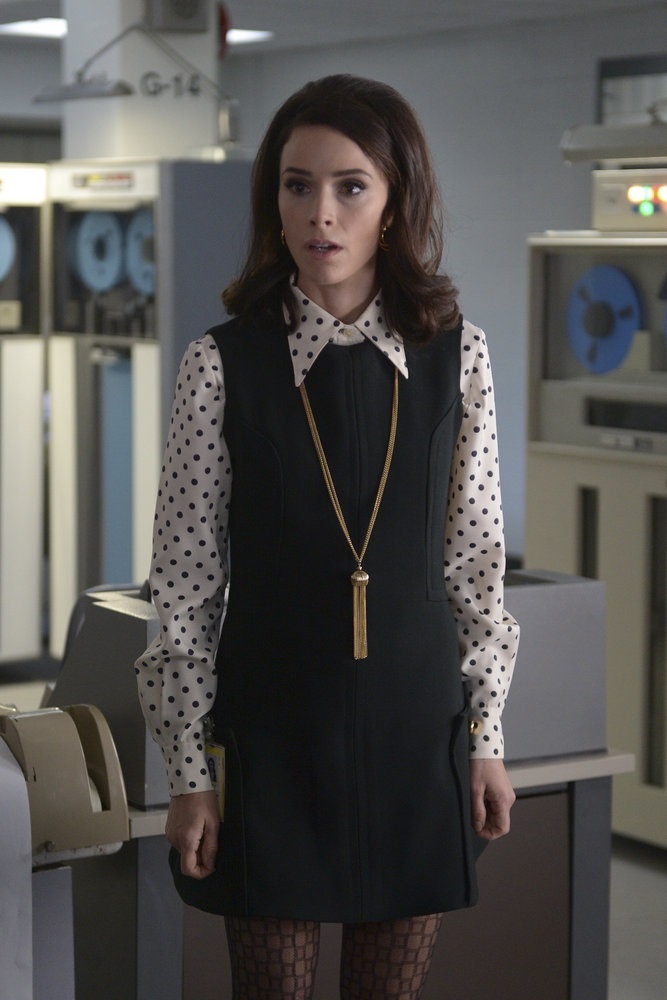
I have a knack for finding and falling in love with TV shows that get canceled after one or two seasons. There have been several shows I have loved and lost over the years, but none have stuck with me the way Timeless has.
Timeless is one of those rare TV shows. One that breaks the cookie-cutter mold we’re used to seeing on tv today and does more than just entertain; it educates. From the first to the last episode, it consistently delivers real, complex characters brought to life by a solid cast, humor, original writing, historic content, and a rich plot that leaves you wanting more. Each of these elements add to the richness of the show, but what I truly believe sets Timeless apart is the character of Lucy Preston.
Few TV shows choose to use a female historian as their lead. We’re used to female cops like Erin Lindsay or scientists like Temperance Brennan. While I love and respect those female leads, I have never connected to a character the way I do to Lucy Preston. I’m not a cop, a scientist, or a tech guru. I’m a writer and a historian.
Lucy’s character drives every other element of the show from beginning to end. She is unique and raw, less like a character in a show and more like a real, fleshed out person. I appreciate so many elements of Lucy’s personality, her unashamed passion for history, her fierce loyalty (even if it is to a fault sometimes), her ability to be resilient and vulnerable. But one of the things I appreciate the most is not just her desire to see change, but her willingness to be the one to start it.
We see this element of Lucy’s character in every episode, but one of my favorite instances is in the episode Space Race. Lucy has just come from the basement where Katherine Johnson (the first African American in NASA and the mathematician who made the moon landing possible) was forced to work. As Lucy walks the halls of NASA headquarters trying to save the moon landing, she is mistaken for a secretary and asked several times by a rocket scientist to make him a cup of coffee.
“There you are. Sweetheart, I never got that coffee,” the man says in passing.
“Sorry, very busy,” Lucy says, continuing to walk by.
The man grabs her by the arm, spinning her around to face him and says, “Come on Doll. How busy can you be?”
Lucy replies, “My name is not Doll, or Sweetheart, or anything else that sounds like a baby. The women here have actual names. I’m sure you can learn their names, it’s not that hard. Kind of like making coffee for yourself. You’re a rocket scientist. Figure it out.”
The beautiful thing about this response is that Lucy does it in front of a group of women who actually work at NASA as secretaries. Her reply is less about defending herself and more about showing the women of the late 1960s that they don’t have to put up with the demeaning way they are treated. As viewers, it is also a reminder to us to speak up when we see injustice. In the beginning of the series, Lucy’s primary goal during the time jumps is to preserve the past, but as she finds herself in the past interacting with history and people, not just events and characters in a book, her desire shifts from preserving history to protecting people.
I love a good TV show as much as the next girl, but as a writer and a storyteller, I’ve grown frustrated with this generation of TV shows. Most shows today have this cookie-cutter quality to them. The characters and plot almost seem copy and pasted from one show to the next with a few minor changes in an attempt to make them different. Instead of producing quality and original content, this trend in storytelling has become the new norm.
We need more shows like Timeless that entertain and educate; shows that continue to make a difference long after their series finale. Teachers are using it in classrooms, and children and adults alike are connecting with history in a way they never have before because of it. People, especially young people, emulate what they see. If we want more Lucy Prestons in the world, we need characters like her that show us the beauty in our own authenticity as women and challenge us to give a voice to the voiceless.
-Emily VanderBent
Junior Girl
Girl Museum Inc.

I haven’t seen this show, but I opened the blog and couldn’t stop reading about it. I will definitely add this to my to-be-watched list.